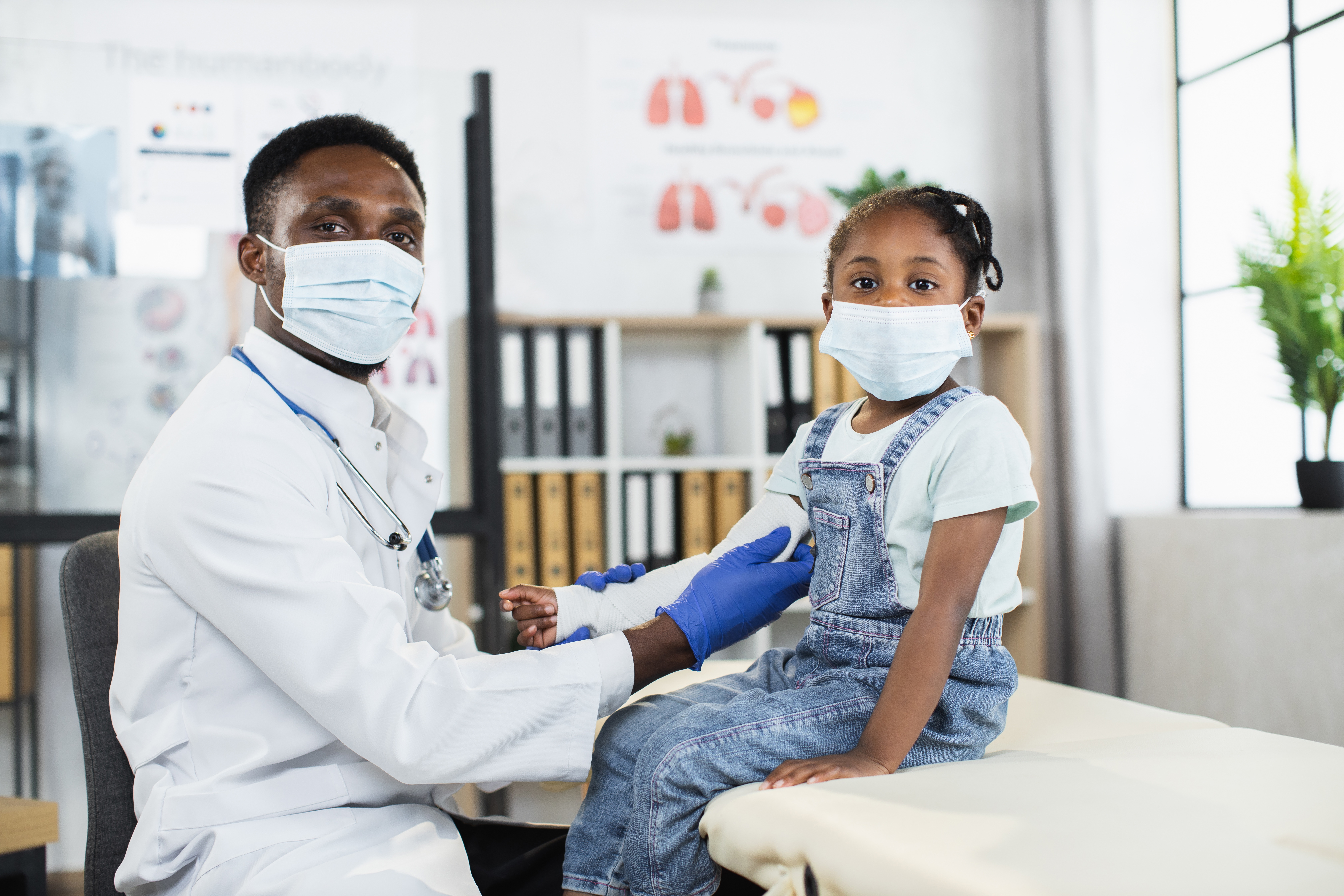FAQs- HEALTH
WHAT IS THE NHS?
- In the UK your health is looked after through the National Health Service- which provides everyone with healthcare based on individual’s need rather than their ability to pay.
- It is mostly free* for UK residents at point of use however the public contribute to funding the NHS e.g. general taxation, national insurance and other charges (prescriptions, immigrant health surcharge, etc)
*GP, A&E treatment, family planning services, treatment of STI, COVID 19 vaccination and treatment and treatment of certain contagious diseases, are free of charge for both residents and non-residents
WHO IS THE GP/ GP SURGERY TEAM?
- A General Practitioner (GP) is your family doctor and is the main point of contact for general healthcare and advice for NHS patients. Your GP team is usually based in a local clinic called a GP surgery GP practice.
- Although they are the one of the first contacts if you have a health concern they can also refer you to other NHS services, health professionals and hospital consultants
HOW DO I REGISTER WITH A GP?
- First check online if the practice is accepting new patients and get general information about the practice team.
- If you are moving from one GP practice to another you should first get registered with a new GP who can then request your records from your previous GP
Further information
England- https://www.nhs.uk/nhs-services/gps/how-to-register-with-a-gp-surgery/
Scotland- Registering with a GP practice | NHS inform
Northern Ireland- Your local doctor (GP) | nidirect
Wales- Registering with a GMS Practice – Cardiff and Vale University Health Board (nhs.wales)
HOW DO I ACCESS DENTAL CARE?
- Find a dental surgery/clinic that’s convenient for you and contact them to see if you can register there.
How to find an NHS dentist – NHS (www.nhs.uk)
- If in urgent need of dental advice ring 111 for emergency/out of hours dentist or visit https://111.nhs.uk/guided-entry/dental-help
- Unlike GP services you usually have to pay for your dental care unless you are exempt and criteria for exemption may be slightly different depending on which region of UK you live and your health circumstances.
England- Who is entitled to free NHS dental treatment in England? – NHS (www.nhs.uk)
Scotland- Dental treatment – NHS Scotland | NHS inform
Wales- NHS dental charges and exemptions | GOV.WALES
Northern Ireland- Health Service dental charges and treatments | nidirect
HOW DO I GET EYE CARE?
- The NHS recommends you have an eye check at least once every 2 years, and you may need to have this more often depending on your personal health circumstances.
Visiting an optician – NHS (www.nhs.uk)
- Find an optician and see if you are entitled to free NHS eye tests
- In case of urgent eye concerns
Urgent Eyecare Service (UES) covers sudden onset eye problems (primaryeyecare.co.uk)*
- You can also call NHS 111 or go to an urgent treatment centre- more information below
*This service is available only in England but there are other similar services in other regions
WHAT ABOUT PHARMACIES AND GETTING MEDICINES?
Pharmacies
- Pharmacies serve to dispense prescribed medications, sort out repeat prescriptions (if you take regular medication(s), sell of over-the-counter (non-prescription) medicines, dispose of unwanted or out-of-date medicines, advise on treating minor health concerns etc
Pharmacists
- UK pharmacists are trained to offer clinical advice and to treat a range of minor illnesses,
and can answer your questions on medicines.
- They are usually based in local pharmacies or can work as part of your GP surgery or hospital team.
How your pharmacy can help – NHS (www.nhs.uk)
Prescriptions
- In England* every item prescribed attracts a fixed charge unless you are exempt. Contraception prescription is free, however.
- See link for more information on exemptions and how to save money on prescription costs.
*Prescription charges do not apply in Wales, Scotland or Northern Ireland
Over-the-counter medicines
- Some medicines are available to buy online or in pharmacies without a prescription {over-the-counter (otc)medicines}. If you have a regular/repeat prescription, please let your pharmacist or GP know that you also take these otc medicines so they can advise of any potential drug interaction
Previous regular medications
- You may already take medications regularly and find they are not readily available in UK, or they go by a different name. Speak to your GP or pharmacist about this so that you can get a suitable and equally effective alternative.
WHERE CAN I GET URGENT MEDICAL ASSISTANCE WHEN I NEED IT?
Accident and Emergency
- Only attend A&E if you have a life-threatening problem, or you have been advised to go by a health practitioner. You can also call an ambulance in an emergency situation to get you to A&E.
Calling 999
- The emergency number is 999, which serves for Ambulance, Police and Fire service.
- Call 999 and ask for Ambulance service only if appropriate https://www.nhs.uk/nhs-services/urgent-and-emergency-care-services/when-to-call-999/
- Call 999 and ask for Police, to report a crime that is in progress or someone is in immediate danger or immediate terrorist* threat Contact the police | Police.uk (www.police.uk)
- Call 101 if urgent police query but no ongoing crime/immediate danger.
- If it’s not safe to speak, you can still call 999 and tap 55 when prompted Silent_solution_guide.pdf (policeconduct.gov.uk)
*there is also an anti-terrorism hotline 0800 789 321
Calling NHS 111
- Call 111 if your query isn’t life-threatening but also can’t wait until your GP surgery opens the next day. You may be asked to attend A&E, an urgent treatment centre or advised to await a call back from the doctor
Urgent treatment centres/Minor injury Unit/Walk in Centres
- These provide same day treatment for non-life-threatening injuries and infections which can be more quickly treated to reduce pressure on A&E and resulting wait times
When to visit urgent treatment centres (urgent care services) – NHS (www.nhs.uk)
I’m not well but should I be worried?
- There are other ways to check if your symptoms are serious or not.
I need more information about this condition.
- To get general information about a condition or diagnosis, many people search randomly on google but you can find accurate, evidence based and verifiable information from NHS websites like
www.patient.info -search by condition on top of page or use the symptom checker at bottom
MY QUERY IS RELATED TO MENTAL HEALTH
- Click this link for a one-minute quiz to assess your general state of health mentally.
- To check if your symptoms indicate a serious mental issue
- To get help and support for mental health whatever the situation
- If my concern is regarding a child or young person’s mental health
- For support with challenging behaviour in children
- Advice for sleep issues in children
- Questions and concerns about neurodiversity
- You can also discuss concerns about yourself or your child’s mental health with your GP, the Health visitor the SEN* coordinator (senco) at school, the teacher, your pastor, etc- so that you can get them the help and support they need early on.
*SEN- special education needs
WHAT IF I AM A VICTIM OR HAVE WITNESSED DOMESTIC VIOLENCE?
- Please reach out and speak out. There is a whole lot of information and confidential reporting and assistance.
WHEN ARE ILL CHILDREN ADVISED TO KEEP OFF SCHOOL?
- School attendance is crucial for children and unauthorised absences can be penalised however there are times when your child would be advised to stay off school.
I NEED CONTRACEPTION AND SEXUAL HEALTH ADVICE
- There are many sexual health clinics which give free, confidential advice and testing regarding contraception and genital related problems and infections. Find one nearest to you.
- You can also contact your GP practice for more advice.
I HAVE BEEN INVITED FOR NHS SCREENING CHECK
- Screening is a way of checking if an individual has a high chance of developing a problem before it happens. The aim of this is to prevent the disease or at least catch it at a very early stage, this can have a huge impact on the impact and survivability of a disease.
- Some screening programmes in the NHS
NHS health check, https://www.nhs.uk/conditions/nhs-health-check/
New-born screening https://www.nhs.uk/conditions/baby/newborn-screening/overview/
Screening in pregnancy https://www.nhs.uk/pregnancy/your-pregnancy-care/screening-tests/
Breast cancer screening https://www.nhs.uk/conditions/breast-screening-mammogram/
Bowel cancer screening https://www.nhs.uk/conditions/bowel-cancer-screening/
Cervical cancer (smear) screening https://www.nhs.uk/conditions/cervical-screening/
- Your GP also from time to time will invite you for monitoring checks and medication reviews.
WHAT CARE IS AVAILABLE IN PREGNANCY AND AFTER BIRTH
- Ask your GP for a midwife referral once you become aware of your pregnancy.
VACCINES AND VACCINATION
Vaccination schedule
- There are various vaccines offered to both children and adults on the NHS. Each country’s vaccination schedule is different because the type, burden, and transmission of infectious disease varies in different regions of the world.
- It is therefore important to ensure that children who are new to country are fully vaccinated based on UK schedule.
NHS vaccinations and when to have them – NHS (www.nhs.uk)
Seasonal vaccines
- There are vaccines offered every year in autumn through winter to certain groups of people to protect against the flu https://www.nhs.uk/conditions/vaccinations/flu-influenza-vaccine/
Travel vaccination
- For UK residents traveling outside of the UK it is advisable to get advice as you may need travel vaccination (even if you are going to your home country) This service is widely offered by pharmacies, GP surgeries and private clinics across UK.
Travel vaccinations – NHS (www.nhs.uk)
Covid vaccination
CAN I SEE A DOCTOR OUTSIDE OF THE NHS?
- You can access healthcare privately (see the GP or consultants, get private prescriptions, have procedures and surgeries, imaging and scans, physiotherapy, mental health counselling and many more) privately.
- You could either pay out of pocket or take out a private health insurance policy.
- People choose to go private for many reasons:
- If the medication or procedure they want isn’t available on or funded by the NHS
- To avoid long wait times of NHS referrals
- If they are not eligible for NHS funded healthcare (e.g. overseas and non UK resident patients)
- Personal preference.
- Your NHS doctor is not obliged to recommend a particular service as you can directly search contact your desired private hospital and your insurance company can provide you with options.
- Your GP can provide a referral letter if required https://www.privatehealth.co.uk/clinics/




